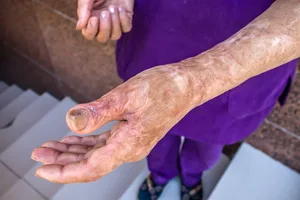- May 20, 2024
- Wrongful Death

Losing a loved one is devastating. Whether their death was the result of natural causes or of an unexpected accident, the permanency and gravity of the situation itself can be difficult to grapple with. What’s more? Learning your loved one’s death could have been caused by another party’s negligence or carelessness and therefore could have been avoided only adds anger, frustration, and more to an already complex array of emotions. With all of this in mind, it can be difficult to have capacity for the legal side of matters as well. In today’s blog, your Dallas, TX catastrophic injury attorneys identify who can file a wrongful death claim in the state of Texas and what the process entails.
Potential Causes of Wrongful Death
In the state of Texas, a wrongful death claim is a legal claim against another person or company who can be held liable for the death of an individual. Wrongful deaths can occur in a variety of situations, and are often identified as resulting from another person’s carelessness, negligence, and/or intentional action. Examples of situations that can lead to a wrongful death include major car and truck accidents, construction falls, major injuries sustained as a visitor on another company or individual’s property, and more.
Though we may recognize that there is a risk in nearly everything we do and everywhere we go, we can easily lose sight of the fact that just because the chances of a major accident happening to us are low, it does not mean that they are zero. In the event that a major accident could have been avoided had proper safety precautions been taken, however, the law indicates that an individual or company whose actions or inactions contributed to the accident could be held liable.
Who Can File A Claim?
If your loved one passed away as a result of an accident that could be considered a personal injury, you may be wondering how you can obtain justice for them. Under Texas law, not just anyone can file a wrongful death claim, however, and you must meet the defined criteria to do so. In Texas, a surviving spouse, a surviving minor or adult child, a surviving parent, a legally adopted child of the deceased, a surviving adoptive parent, or the personal representative of the estate of the deceased may all file a claim. If you have questions and would like to learn your potential options, call our office for a free consultation.
Proving Negligence
Though the concept of a wrongful death is simple to understand, proving it, however, is quite a different story. When an individual is negligent, it means he or she did not do something they were supposed to or they did something they were not supposed to. To prove negligence, the plaintiff’s attorney must prove to the judge that a legal duty was owed, that the duty was breached, that the breach of said duty caused an actual injury, and that there must be monetary damages that occur.
Ask Us About Your Options
Wrongful death law can be complex and challenging, but having an experienced personal injury attorney on your side to handle the legal side of matters can make all the difference. Contact Crain Brogdon LLP in Dallas, TX by calling (214) 522-9404 to schedule your free consultation with our team and learn more about your options.

Attorney Quentin Brogdon
Quentin Brogdon has over thirty years of experience and expertise in the field of personal injury trial law. He is board certified in both personal injury trial law and civil trial advocacy. Quentin has received an AV rating from Martindale-Hubbell, the highest possible rating. This rating reflects an attorney’s ethics and abilities according to reviews from fellow attorneys. [ Attorney Bio ]






Recent Comments